Over the weekend, you may have seen the tweets/posts about a number of people’s Buffer accounts getting hacked. Here’s just one example of the many tweets I started seeing around noon on Saturday:
Big problem, right? Would Buffer respond over the weekend? How quickly would they be able to fix the hack? And how loudly would the legion of Buffer users complain?
Turns out, Buffer was all over this. ALL OVER THIS.
Within an hour (by my watch) Buffer had responded on Twitter and Facebook (the two primary platforms of use).
They also had a running blog post with more specific updates–including a timeline–up on Saturday afternoon as well.
The post detailed the timeline and gave specific guidance around how to reconnect your accounts (with screen grabs–which was a nice add).
You’ll also notice the post had 175-plus comments (as of Sun. afternoon)–many of which were supporting the complimenting Buffer for how they managed the situation.
And, the supportive comments weren’t just limited to the blog post. Many, many Buffer users tweeted and posted their support throughout the crisis.
I thought it was also interesting to see Buffer CEO Joel Gascoigne chiming in regularly with many apologies and admitting fault–something you don’t see from companies all that often.
Oh, and they also kept people abreast via email over the weekend, too.
Again, Joel and the Buffer team updated its users this morning with another email. Note, he apologizes TWICE in the email, provides links to pages you can visit to make the fixes, and a link to the blog post with a running list of updates.
Whew.
So, what did we learn from the Buffer “crisis” over the weekend?
Speed matters.
Buffer was all over this–from the get-go. Within an hour, they had a tweet, Facebook post and blog post up detailing the situation. Now that’s responding at the speed of the consumer.
Goodwill matters.
What really helped Buffer the most through all this was the tremendous amount of goodwill they had clearly built of the last three years. I can’t remember how many positive tweets or Facebook posts I saw from people on Saturday and Sunday from Buffer users. Instead of frustration and anger, what you saw was a community trying to support a product they use as a part of their daily work lives.
Humility matters.
Probably a big reason for that goodwill was the manner in which Buffer approached this crisis from the outset. They quickly apologized and admitted fault. And, they worked hard (over the weekend, keep in mind) to rectify the problem (which they did Sat. evening). And, again, you saw the CEO and founder himself out in front of this apologizing up and down the line–even when he really didn’t need to. I thought that really went a long ways with people.
Community management matters.
Again, Buffer was all over this. Now, admittedly their product is heavily connected to social media and community-manager types. But, that’s also what makes their response execution so impressive. They responded to HUNDREDS of tweets over the 24 hours on Saturday and Sunday when the hack took place. And, they continued to respond well after the hack had been fixed. Again, that sense of community REALLY helped Buffer out when it needed it most.
Integrated responses matter.
Buffer didn’t just rely on one channel to share information during this crisis–they had a multi-channel strategy. Really, they had to. They had to community manage via the two major platforms they’re involved with (Twitter, Facebook) and they used their blog as a place to explain details of the hack, the timeline and the fix in detail.

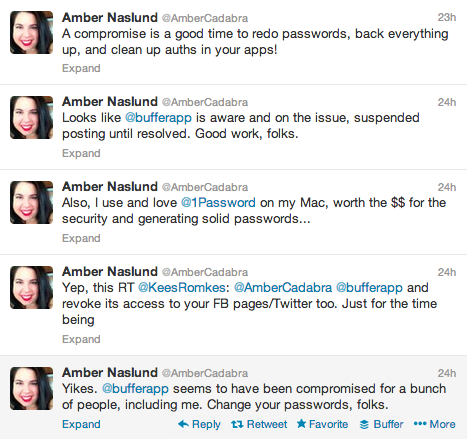
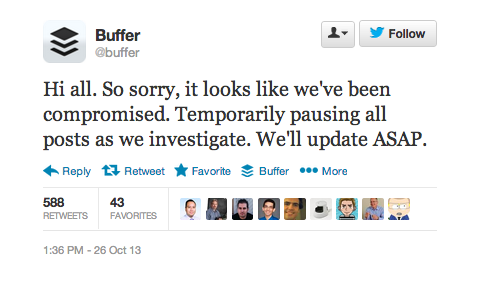
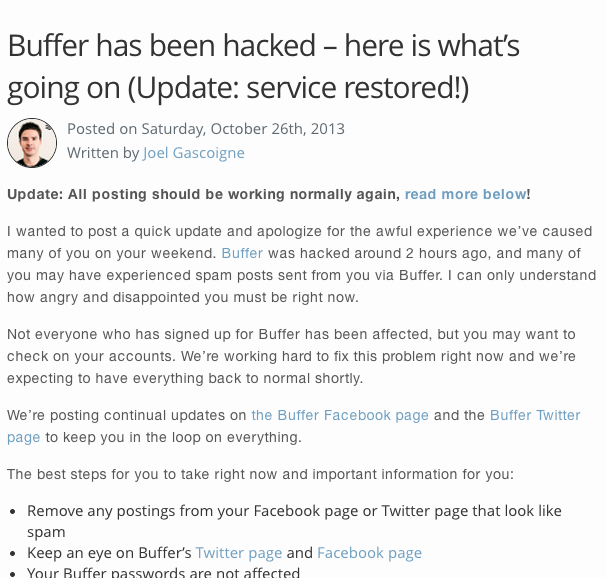
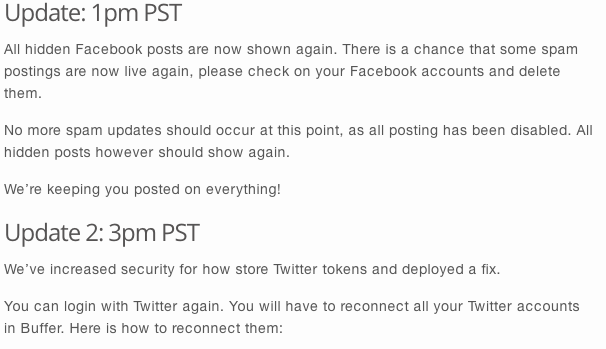

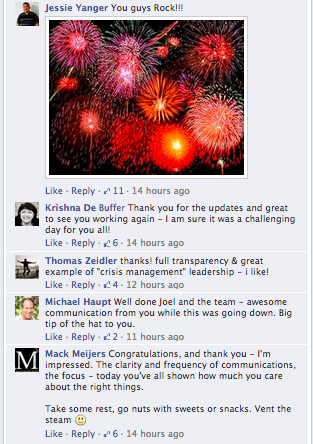
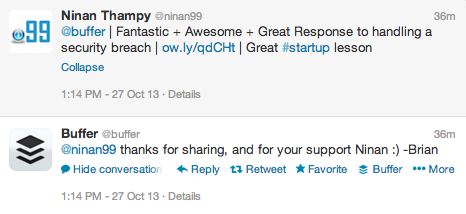
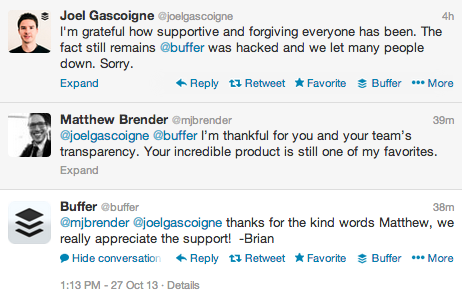
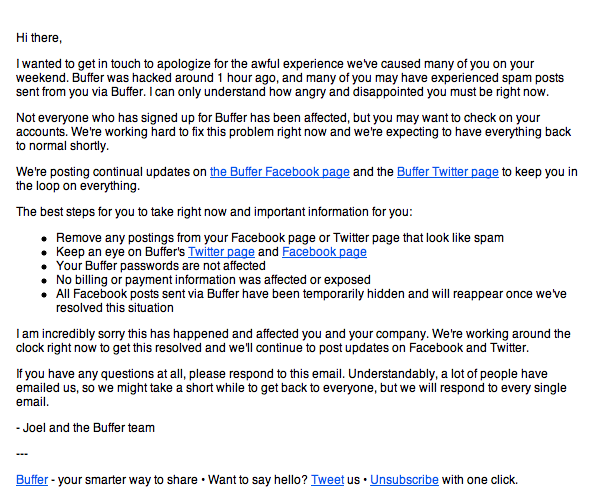
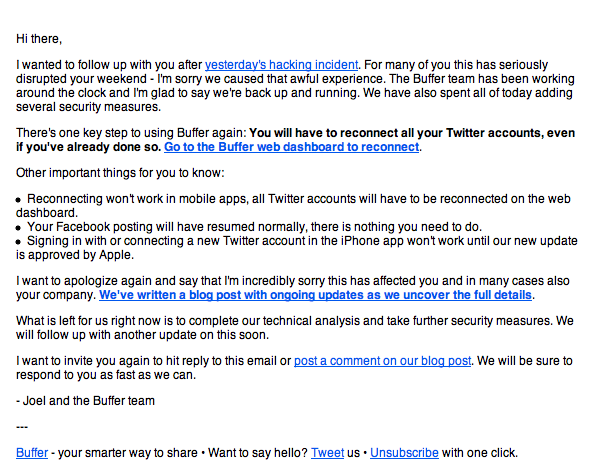
0 Comments